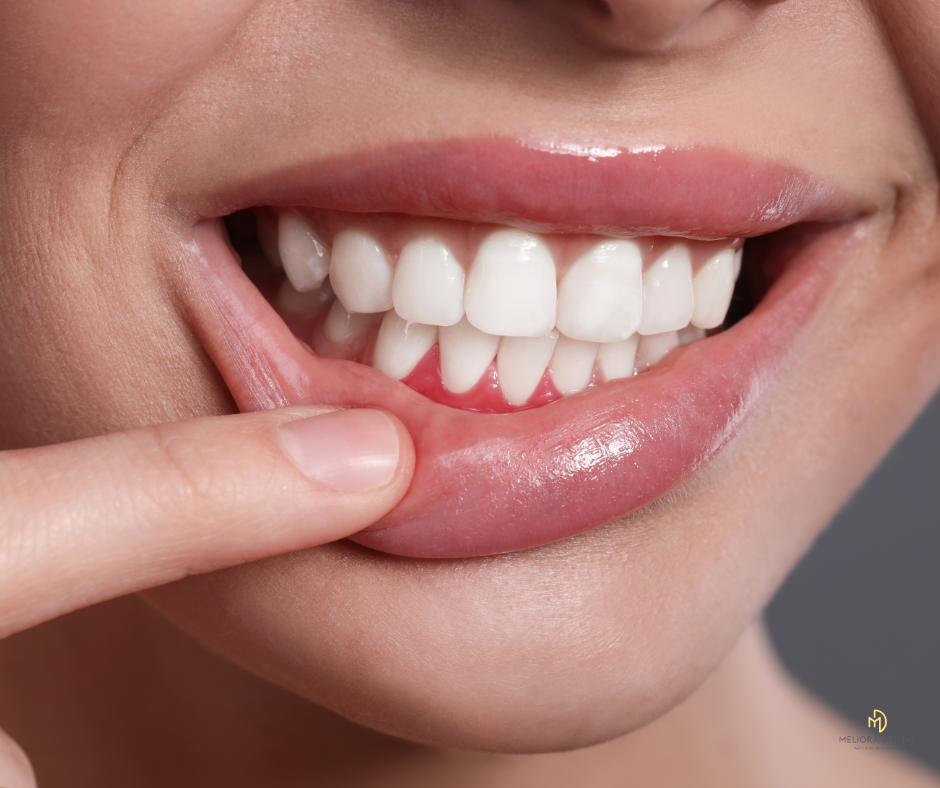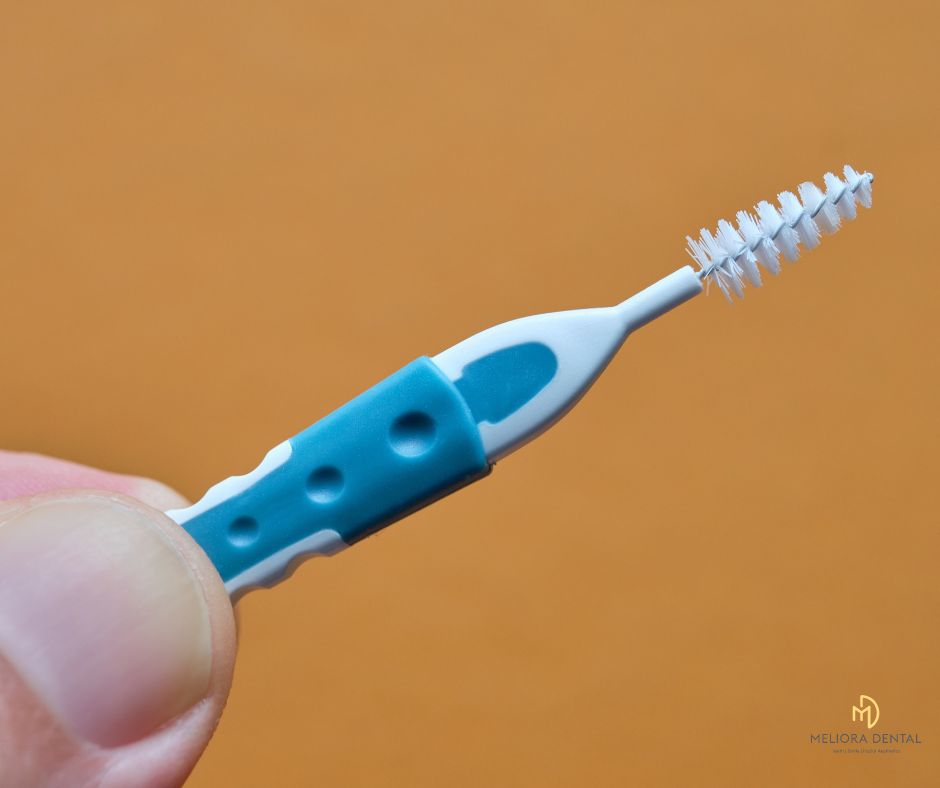Gum health affects your wider health more than you might think. With compromised gum health, you risk doing damage to your cardiovascular health, and even your neurological health, connections we’ll explore a little later in the blog.
Firstly though, is there a secret to healthy gums and how is good long-term gum health attainable? Forget having to look up ‘Periodontist Leeds’ for specialist gum advice, just read on to hear more from Dr Namrata Sharma, Meliora Dental’s leading sage on gum health.

In the UK, at least half of the population have never set foot at the hygienist. This is extremely worrying, and accounts for gum disease being the leading cause of tooth loss amongst the UK adult population.
Seeing the hygienist is synonymous with preventing gum disease. With hygienist visits, you allow harmful plaque and tartar to set up camp along your gum line.
Once plaque and tartar has settled for a number of weeks, it will start to cause symptoms of gum disease, including bad breath, bleeding gums and gum inflammation. These symptoms are your mouth trying to tell you that it needs some TLC – you could almost consider such symptoms a warning of what is to come if you don’t address gum disease.
Visiting your hygienist every 6 months is a significant part of ensuring your gum health doesn’t reach this stage. By having plaque and tartar removed (something you should not try at home), you free your gums from harmful biofilm that will go on to cause future damage.
Modern diets are the top reason why teeth become prone to gum disease.
Much of the foods we enjoy in the Western world are full of sugar and acids (even if they might falsely profess to being healthy).
When you enjoy sugary and acidic foods, the bacteria in your mouth feast from the acids, and plaque is the byproduct of this, sticking to your teeth and causing damage.
Speaking to a nutritionist is the best way to identify the problem foods in your diet that could be causing excess plaque and tartar buildup. Often, Dr Namrata finds that it’s the foods people least expect to be culprit foods that are damaging their gum health.
She will make a full assessment of your diet, and help you find substitutes for the foods that are causing the damage.
You can also use apps such as Yuka, which quickly help you to identify additives and sugar content within a specific product.
We get it. Brushing and flossing are boring. But, these actions protect your health, so it’s just something that has to be done.
Regularly failing to brush and use interdental brushes each day has cumulative consequences for your oral health. Even just a single missed oral hygiene maintenance session every couple of weeks can cause excessive bacteria build up (not to mention decay). We recommend using interdental brushes over dental floss, as they result in a more effective clean between each tooth.
After you eat, it takes just a matter of minutes for plaque to settle on your teeth, and 24-72 hours for plaque to turn to tartar (which you really don’t want to happen).
Letting this plaque and tartar stick around (pardon the pun!) will increase your risk of developing gum disease, and if you’re not someone who regularly drinks water, the risk is even higher. Enjoying a glass of water after you eat will help to rinse away the gum disease-causing food particles that remain after you eat.
But even water won’t wash away everything. In failing to floss, you are missing out on cleaning a third of your tooth surfaces. Just imagine if you had a shower and neglected to clean a third of your body! You just wouldn’t. So, the same should apply to your oral health.

If you do experience regular bleeding from the mouth, or you’ve noticed your teeth look a little different, don’t wait until your next hygienist appointment to get yourself checked over.
Increasingly regular bleeding of the gums is your mouth trying to tell you gum disease is already on its way. At this stage, it’s very possible to mitigate the damage, and even reverse the condition altogether, something which becomes much harder once periodontitis has set in (this is the clinical name for advanced gum disease).
Untreated periodontitis can have catastrophic effects on your oral health, such as the gums pulling away from the gum and jawbone. This is the start of a chain reaction of problems leading to loose teeth and eventually, tooth loss.
And untreated periodontitis doesn’t stop a harming your oral tissues and jawbone. Once pockets form in your gums, plaque and tartar can bury its way underneath the gum line, and eventually enter the bloodstream.
This is when things can quickly become worrying for your cardiovascular health, as plaque in the bloodstream is never a good thing. The increasing plaque levels in your bloodstream can eventually cause heart attacks, and even neurological conditions such as dementia.
But things don’t have to reach this stage, and if they do, there is always a way back for your oral health. Here at Meliora Dental, we’ve helped patients with an entire mouth of failing teeth nurse their gums back to health. Alongside our periodontal services, we offer restorative treatment using dental implants dentures and bridges, so that you can look to the future, and see a healthy and start to see a rejuvenated smile on the horizon.
Dr Namrata is continually engaging in further training and learning the use of new and emerging technologies. She brings this knowledge into the practice as a dentist with a special interest in periodontics. She has helped countless patients with gum health evaluation and gum disease treatment.
Book your appointment with Dr Namrata by getting in touch with our lovely reception team.
BACK TO BLOG